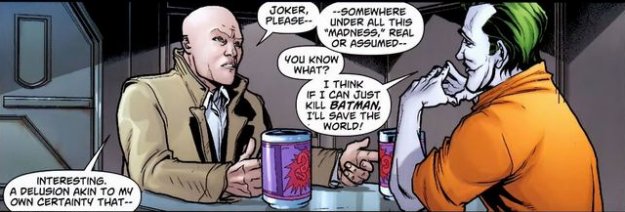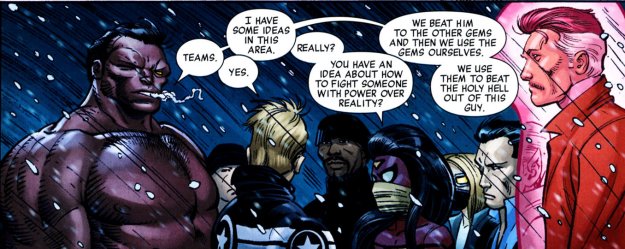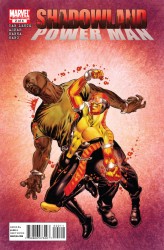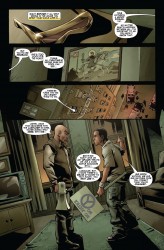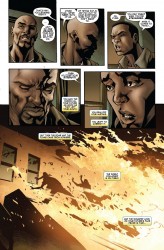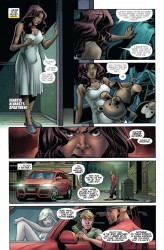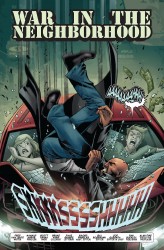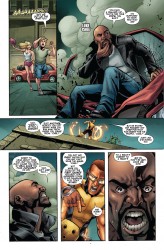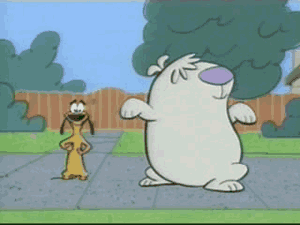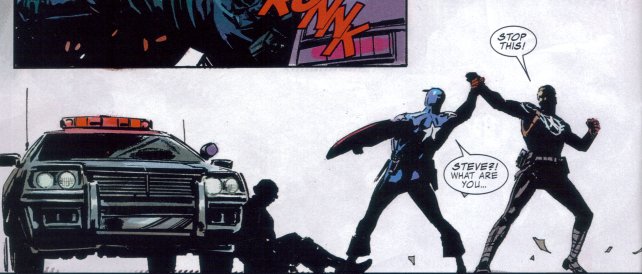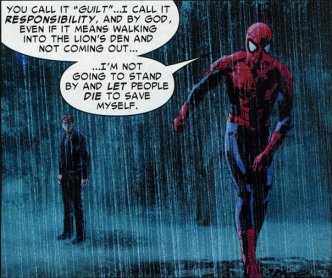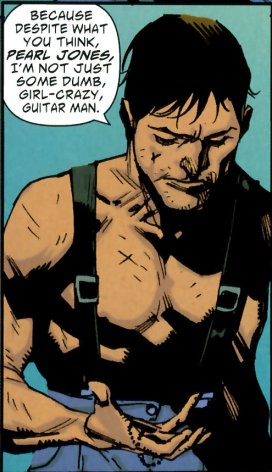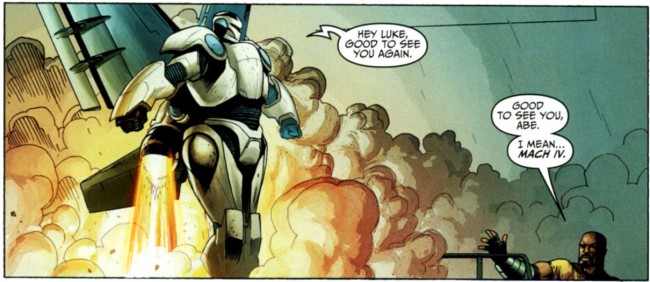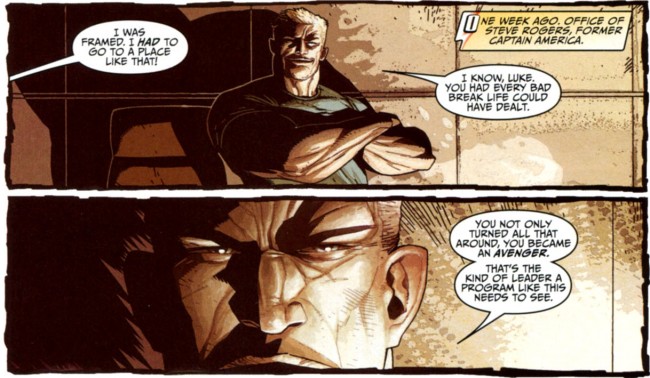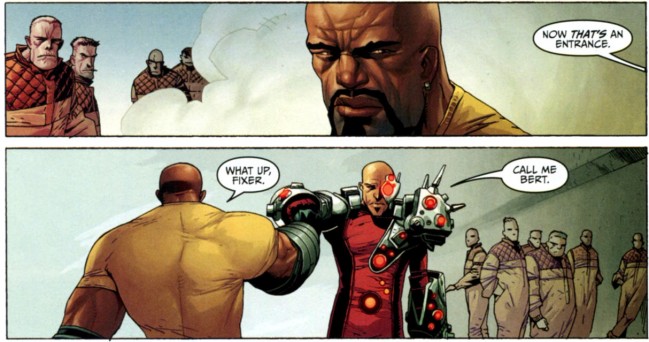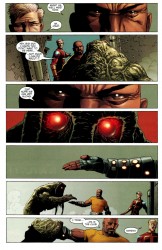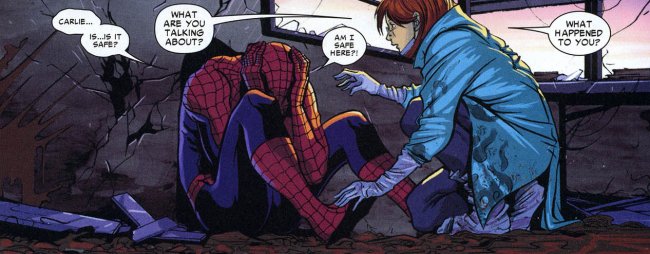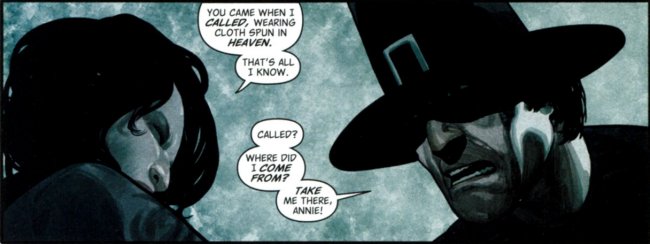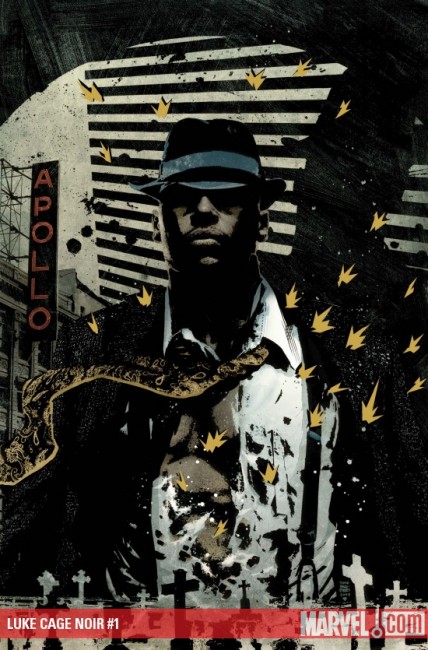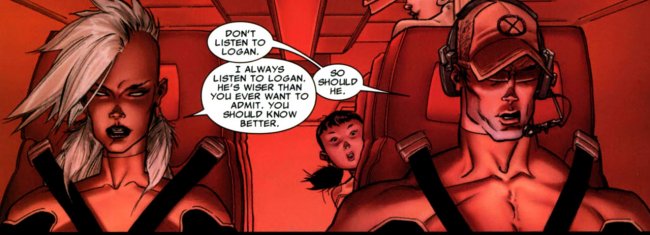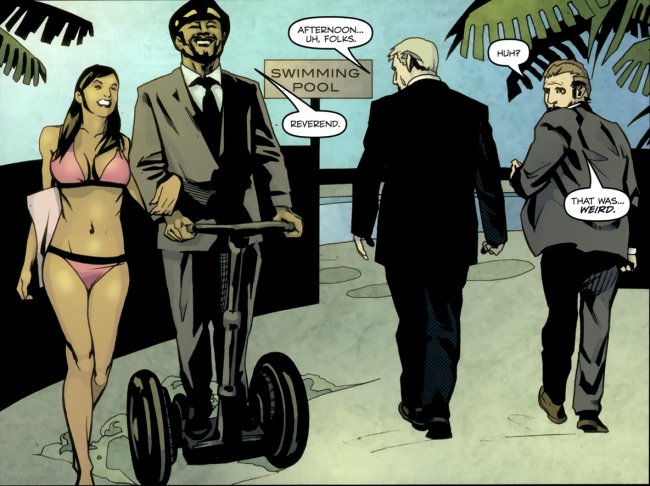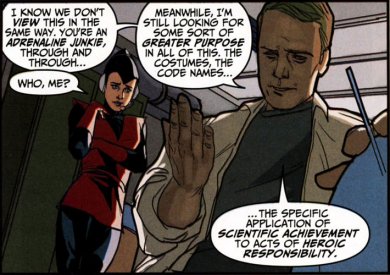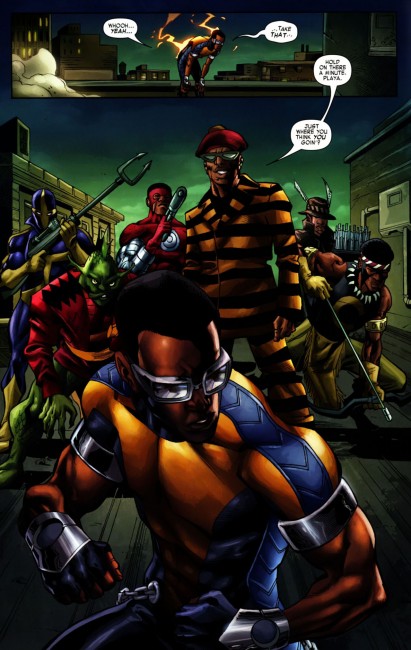
Verisimilitude is what makes stories work. It’s a measure of how true the story is and how closely it sticks to believability. Do characters speak, behave, and dress as they should? It’s a tough thing to nail and even tougher to describe. Verisimilitude requires a lot of intangibles to get right, the sort of things that you can only really judge via gut reactions. One man’s dead-on is another man’s completely wrong.
Creating believable white characters is relatively easy. White’s the default ethnicity for Americans, and we’re positively drowning in white culture, for whatever definition of white culture you choose to subscribe to, so you don’t need a lot of reference. Non-white characters, or white European characters, are something exceptional. They’re black or Mexican or Japanese or Scottish characters, rather than just characters. You have to put some sauce on them to get them right.
The black experience is one of those things that exists, but is different for every single person. It’s just real life–some things are common, other things are rare, and the full experience is something unique. The key to verisimilitude is capturing those common aspects so that people reading it can grab onto them. They provide a touchstone, or something to relate to. The more of the story that is true for you, the more of it that you’re willing to buy into. It’s a con. You get someone to believe one thing and they’re much more likely to believe the next thing you tell them.
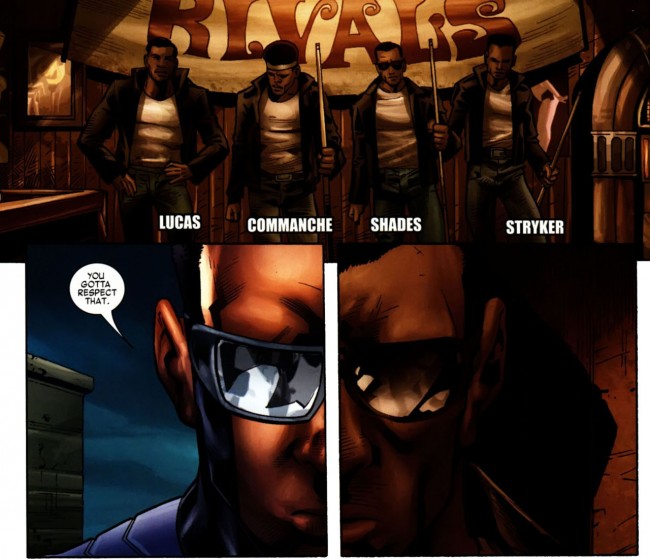
Chris Claremont’s method was to layer on the shtick and hope for the best. It worked well enough at the time, but it comes off corny now. Attempts to make Luke Cage a believable black character resulted in what feels like parody today. If you look closely at your non-white character of choice, you can probably see these tics or traits clear as day. They’re an attempt to lend verisimilitude.

What I liked about Fred Van Lente and Mahmud Asrar’s Shadowland: Power Man 2 is that it’s one of the few cape comics in ages that actually felt like it reflected the black experience. It’s not corny, it’s not ironic, and it’s not self-conscious. It just feels natural. The next closest candidate would be Jeff Parker and Kev Walker’s Thunderbolts, but Power Man surpasses even that. It’s all due to verisimilitude.

It’s the little things. It’s the way Victor’s mom uses his whole name when she gets mad at him. A quick survey of my friends suggests that this happens in black and latino houses, but not so much in white ones. Or the way the white kids talk about how down they are because they listen to black music, clearly one beer and half a blunt away from hitting their black friends with a “my nigga” like it’s all good. It’s how the dialogue has subtle shifts away from the Queen’s English without dropping into a white impression of jivetalk.
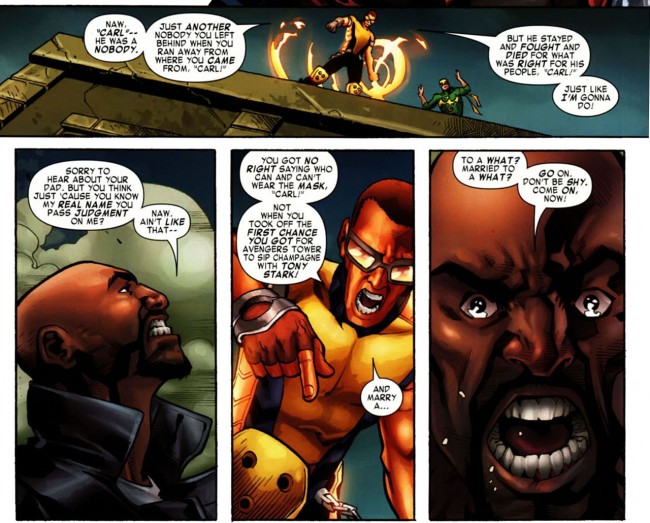
Victor spends the entire issue calling Luke Cage “Carl,” a reference to “Carl Lucas,” his government name. It’s the sort of thing that’s just a diss in and of itself–he’s calling Cage out of his name as a show of disrespect. More than anything else, it puts me in mind of Cam’Ron’s 50 Cent diss “Curtis”, where he turned 50’s real name into a sing-songy diss. It’s both basic disrespect and a reference to the fact that Victor knows who Cage is and doesn’t buy into his hype.
Interracial dating is touchy, too. Every young black male, at least the ones where I’m from, knows to tiptoe around white girls, just in case. There’s nothing that people like better than a chance to paint a black dude as a victimizer of white virginity (see also: Kanye West/Taylor Swift and the out of proportion reaction), and you don’t want to get caught slipping. On the black side of things, a black guy with a white girl is a sell-out. Strong black men (there’s about eight, total) need to stick by their sisters, blah blah blah.
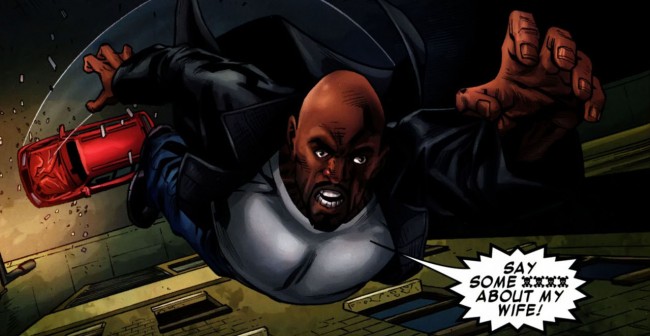
So yeah, when Victor is airing out Cage for leaving the hood and deserting his people, he’s definitely going to get at Cage for marrying a white girl. And yep, Cage is definitely gonna be extremely pissed, because I guarantee almost every black girl he knows (with the exception of Storm) has been giving him the side-eye. That kind of nagging is senseless, but it happens, and people cope. Some people laugh it off. Others get up in your face and dare you to say some ☠☠☠☠ about their wife. Victor’s apology even rings true–it’s an unfair accusation, rooted in centuries old brainwashing, and everyone knows it. But, we still do it.
It is what it is.
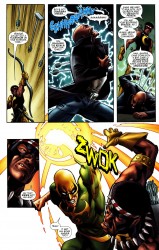 There are other parts that rang true, too. A distrust of altruism and a trust of money. The only people who’ll work for you for free is family, and they’ll only do it under duress. But if you put money in someone’s pocket? That’s a contract. The emphasis on staying where you’re from as an indicator of your realness. Commanche’s implication that getting clean money is less than making brown paper bag money. Most especially, though, is the way that Victor can’t escape his dad’s shadow. He’s going to end up paying for his father’s sins even as he’s busy atoning for something he said to his father by wrapping himself up in his father’s past. He’s stuck in his orbit and he really can’t escape it.
There are other parts that rang true, too. A distrust of altruism and a trust of money. The only people who’ll work for you for free is family, and they’ll only do it under duress. But if you put money in someone’s pocket? That’s a contract. The emphasis on staying where you’re from as an indicator of your realness. Commanche’s implication that getting clean money is less than making brown paper bag money. Most especially, though, is the way that Victor can’t escape his dad’s shadow. He’s going to end up paying for his father’s sins even as he’s busy atoning for something he said to his father by wrapping himself up in his father’s past. He’s stuck in his orbit and he really can’t escape it.
I like that Van Lente is actually using Cage’s past beyond someone talking about how he did time. My main man DW Griffith is still MIA, but Shades & Commanche make an appearance, amongst several other old Cage villains of varying levels of competence. Cage’s past actually has a direct connection to the current story, but not to the point where you have to have read all of his old appearances (though marvel makes it easy on you ). I like how it implicitly sets up a road less traveled dichotomy between Cage and Victor’s father. If Cage had chosen differently or stayed with his gang, things could have been very different.
). I like how it implicitly sets up a road less traveled dichotomy between Cage and Victor’s father. If Cage had chosen differently or stayed with his gang, things could have been very different.
I really enjoyed that Van Lente and Asrar brought back a bunch of Cage’s old villains. They look silly, and they’re treated like jokes, but not like blaxploitation jokes. Ha ha afros and platform shoes! Cage and his comic tend to get summarized as “Where’s my money, honey?” over and over again, which is both a disservice to the character and needlessly reductive. Jokes about how blaxploitation is soooo wacky are trite.
But really, it’s the verisimilitude that did it. I know the FBB4l! axis found it to be a very strong book, and that includes a black guy from the south, a different black guy from New York, a white guy from Kansas, and a Dominican dude from Queens. It isn’t a black book in that it’s constantly screaming at you about how black it is and look at this this is like The Wire, this is the hood, man. No, Power Man builds a world around Victor Alvarez that is just intensely believable. I want more like this.

